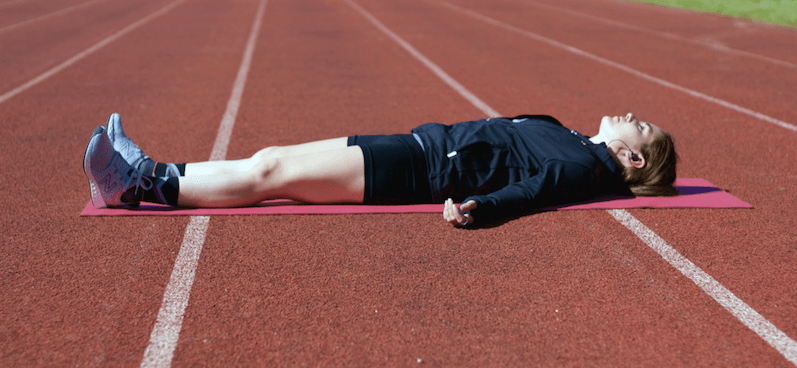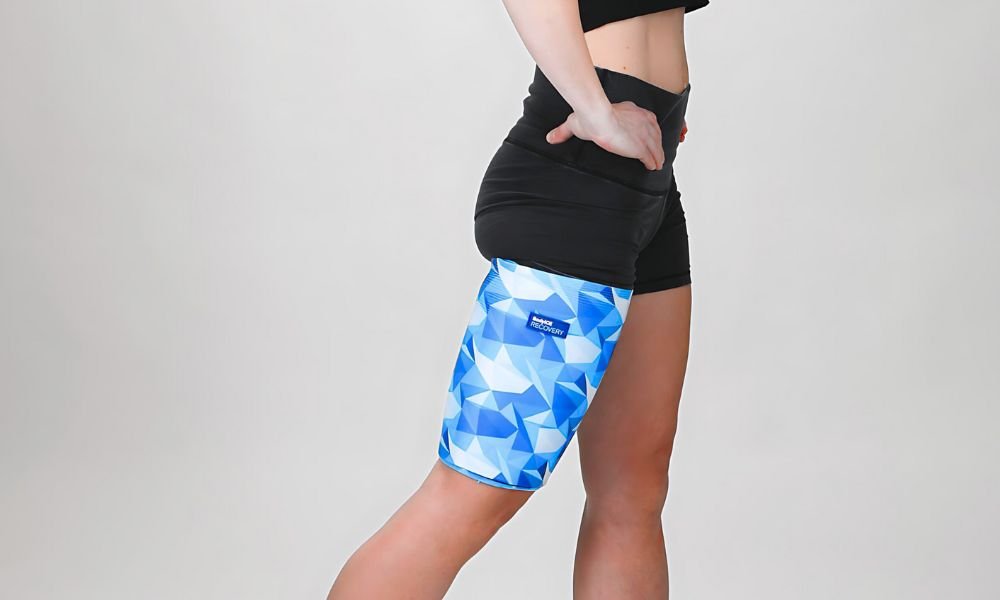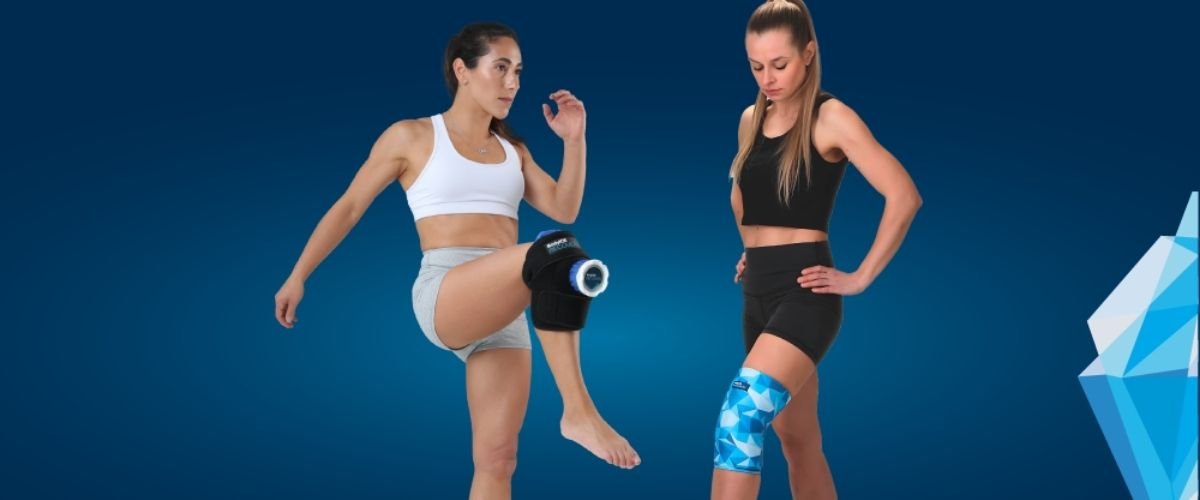If you've ever watched a stage hypnotist have someone act like a chicken, or stand on their head, or do some other equally stupid or frivolous behaviour, you may have wondered whether hypnosis could be used in more useful and constructive ways.
You may perhaps have heard of hypnosis being used to stop smoking, lose weight or change some other unwanted behaviour, but could it be used to do better what you already do well? Can hypnosis, for instance, assist sportspeople to improve their performances?
The answer is a resounding 'YES!'
Through the use of SPORTS HYPNOSIS techniques, not only can an athlete successfully change an unwanted behaviour or habit, but limiting perceptions and beliefs can be released; pain controlled and injuries healed more rapidly; self-confidence increased, and sports performances significantly improved.
What is Hypnosis?
There are many myths, misunderstandings and half-truths about hypnosis - due to no doubt to the fact that very little is understood about how or why hypnosis works, and even among experienced hypnotists, there is significant disagreement about hypnosis.
So exactly what is hypnosis, and how can it improve my game?
One way to talk about hypnosis is to say that it is a process in which a person induces in themselves a state of mind, (often called a 'trance'), in which their perceptions are significantly altered from those normally experienced in the usual waking state, and in which they have access to a greater range of personal resources and abilities. The resources and abilities of their unconscious mind.
It's important to realise that while some students of hypnosis disagree, many hypnotists understand that it is impossible to have someone follow a suggestion that the person doesn't want to follow. The role of the hypnotist then is not to 'put someone into a trance', but rather the hypnotist helps to create an environment in which the person themselves changes their ordinary 'conscious' perceptions and accesses more 'unconscious' perceptions and resources - and so changes themselves.
No-one can hypnotise you - but you can choose to hypnotise yourself! In fact, this is essentially what you are doing every minute of the day - self-hypnosis! When you say to yourself, "I've got a weak backhand"; or "I always slice"; or "I never play bunkers well"; or "We never play well at that venue", then you're just hypnotising yourself to making it come true! Many of the currently accepted limitations in sport - for example, the supposed 'home advantage' - are simply instances of mass hypnosis, perpetuated by the media, coaches, teammates, etc, and not really 'true' at all.
Hypnosis and Sport
Hypnosis works because of the existence of the 'conscious' and 'unconscious' minds. Our conscious mind represents only a small fraction of the mind's total potential, and the ability to tap into the unconscious parts of the mind and its resources allows an individual to significantly enhance their performance. Excellence in sport is a combination of unconscious competence and unconscious confidence. Unconscious competence in the skills of your sport is developed through hours of practice and repetition until the skills are natural and automatic, and most sportspeople spend much of their time training in this way. Every sportsperson knows that you play best when you play 'unconsciously' - when you 'just do it', without conscious trying or striving .... when you are unconsciously competent. So hypnosis - being a method by which one becomes more familiar with the unconscious mind and its resources and abilities - is something sportspeople can greatly benefit from. Further, the 'peak' experience in sport - those times when you are so in the 'zone' you are unbeatable - is essentially a 'trance' state. Through the use of hypnosis, sportspeople can consistently create these type of peak experiences by choice and design, rather than have them happen by chance or accident.
On the other hand, unconscious confidence is a result of parental and social conditioning and determines your habitual and automatic emotional responses to what others say to you, or about you. Hypnosis can be used to positively program unconscious confidence to replace negative conditioning, or to fill in gaps where there was no positive encouragement as a younger person, and to enhance and amplify the existing positive conditioning.
I've identified five main areas where hypnosis may be of benefit to sportspeople and coaches:
-
Performance Enhancement
-
Time distortion
-
Confidence and Self Esteem
-
Pain control
-
Healing of illness and injuries
Performance Enhancement
Hypnosis may be used in the following ways to enhance athletic performance:
Increase sensory perception: In hypnosis, sensory perceptions are enhanced and this improved sensory capacity can be transferred to sporting contexts.
Change unwanted behaviours and habits: Inappropriate and unwanted behaviours that are preventing an athlete from achieving their full potential can be influenced with hypnosis. For example: eating disorders, smoking, alcohol or drug addictions, overly aggressive or disruptive behaviours, and even learning difficulties.
Unlock latent abilities and reprogram limiting beliefs: One of the most commonly experienced positive consequences of the experience of hypnosis is a changed perception of what is possible, and the surprise of tapping into hitherto unknown resources and abilities, leading to a greater sense of personal confidence and self-esteem.
Role model identification: Trance states may also be utilised to model the skills and behaviours of top players in a given sport, and through this modelling allow an individual to acquire those specific skills and behaviours at an accelerated rate.
Time Distortion
Time distortion is the ability to 'stop' or 'stretch' time - similar to what happens when you experience a life-threatening incident and everything, apparently, slows down. I'm sure you've recognised the ability of elite sportspeople to apparently have so much time to get into position and play their shots. Essentially what they're doing is 'stopping' or slowing their perception of time. This can be taught and trained through hypnosis.
Confidence and Self Esteem
Truly it's not what others say to you, but rather, what you say to yourself after they stop talking. The kind of unconscious confidence that we see in champions is a result of not having to think about being confident or trying to talk yourself up - it's a result of having deeply ingrained at an unconscious level an unshakable positive self-image and powerful positive self-talk that isn't affected by what others say. This can be strengthened through the use of hypnosis.
Pain Control and Healing
Likewise, athletes can be taught pain control techniques to use when under duress, and body healing techniques to speed recovery from both injuries and heavy workouts. Two relatively well-known uses for hypnosis in pain control are in dentistry and obstetrics where a trance is induced to allow the dentist to drill a filling, or the mother to give birth, with little or no pain. Surgical operations have even been performed without anaesthetic drugs - the only pain control method used being hypnosis.
Further, recent work in hypnosis has shown that it may be of assistance in healing both chronic diseases such as cancer and heart disease and in recovering from injuries.
Like all hypnotic skills, both pain control and healing require considerable hypnotic training and practice to achieve but may be learned by anyone with dedicated effort and consistent practice.
By Jeffrey Hodges Via https://www.sportsmind.com.au/index.php/article/hypnosis-and-sport
About Jeffrey Hodges B.Sc.(AES) M.Sc.(Hons)
Jeffrey Hodges is a performance consultant to elite athletes, sporting teams and corporate clients. He is the author of the widely acclaimed Sportsmind, Champion Thoughts, Champion Feelings and Sports Hypnosis training manual - All available in our Mental Training Zone.
He is a NLP Master Practitioner and Associate Trainer, and his Sportsmind programs have been endorsed by the NSW Dept Sport & Recreation, and recommended by top sports clubs and successful athletes worldwide.
For help with mental imagery, head to our Mental Training Zone to download our latest visualisation tracks narrated by Jeffrey Hodges.






Leave a comment
All comments are moderated before being published.
This site is protected by hCaptcha and the hCaptcha Privacy Policy and Terms of Service apply.